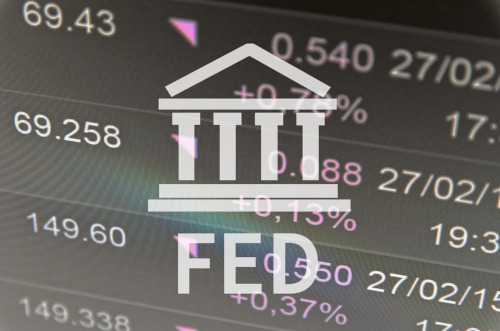For the second time since 2006, the federal reserve raised interest rates. Don’t worry, it’s not all that bad. As policymakers have stated, this rate hike could be an opportunity for strengthening of our economy. Trumps influence on the federal reserve has resulted in a .25 rate increase before his presidency has official begun. So, what does this mean for you?
Here’s a look at potential positives outcomes from this rate increase:
SAVERS
For savers, this increase may be a positive move for their investments. Anything from a checking account, savings account, CD, treasury bills, municipal or corporate bonds, just to name a few, may see an increase in yield over time.
INFLATION
The federal reserve monitors the CPI (Consumer Price Index) and PPI (Producer Price Index) in order to keep inflation manageable. When any of these indicators start showing movement, the federal reserve will raise or lower rates to keep the economy in a stable environment. Higher interest rates result in lower prices for consumer goods, and a higher exchange in value on domestic dollar rates. Lower price for consumer goods can help boost GDP (Gross Domestic Product) and consumer spending.
LENDING PRACTICES
Current lending practices are a direct result of the financial crisis of the past. Although many lenders and banking institutions have tougher lending requirements, overall lending has resumed with competitive interest rates. Banks will have more funds available to lend. With this being said, banks have a greater incentive at higher interest rates which may increase additional credit and boost the economy.
RETIREMENT
When the Federal Reserve raises interest rates. People who are living off of their nest egg or income from savings typically benefit from higher interest rates. Having a significant amount of money in savings accounts, certificates of deposit (CD) or money market accounts is a good thing when the interest rates increase. When you depend on the monthly income from your investments, higher interest rates create a higher return. Retirees who are risk-averse typically put a portion of their cash in other products, such as saving accounts or CDs which may also see a higher interest income with an increase in interest rates.
TRAVEL
The impact of higher interest rates for those who love travel abroad is always positive. The increase in rates creates a stronger US dollar making buying foreign currency and traveling to other countries much cheaper. The rate hike allows travelers to have more money to spend on hotels, food, and transportation abroad.
STOCKS
Any change in the federal funds rate will cause a reaction in the stock market. Typically, when the federal fund rates increase, investors will view government securities, treasury bills and bonds as more safe investment options. In the past, the focus was on the federal reserve and what interest rates will do going forward. Now that the rates are starting to increase, the stock market will now reflect the true fundamentals and not how future interest rates will affect the market.
HOUSING
If you’ve been considering buying a primary residence or second home, now is the time to consider the decision to move forward or not. The rates are not going to go lower anytime soon, which means making a decision on purchasing property or a home needs to be made sooner than later. Lower interest rates mean lower mortgages, which is positive for buyers. Alternatively, increased rates are always a plus for lending institutions, so acting now is better than later when you are looking to purchase a home or property.
Any information is not a complete summary or statement of all available data necessary for making an investment decision and does not constitute a recommendation. Any opinions are those of Paul D. Snow, IV and Snow Financial Group, LLC and not necessarily those of RJFS or Raymond James. Expressions of opinion are as of this date and are subject to change without notice. Every investor’s situation is unique and you should consider your investment goals, risk tolerance and time horizon before making any investment. Investing involves risk and you may incur a profit or loss regardless of strategy selected. There is an inverse relationship between interest rate movements and fixed income prices. Generally, when interest rates rise, fixed income prices fall and when interest rates fall, fixed income prices generally rise.

